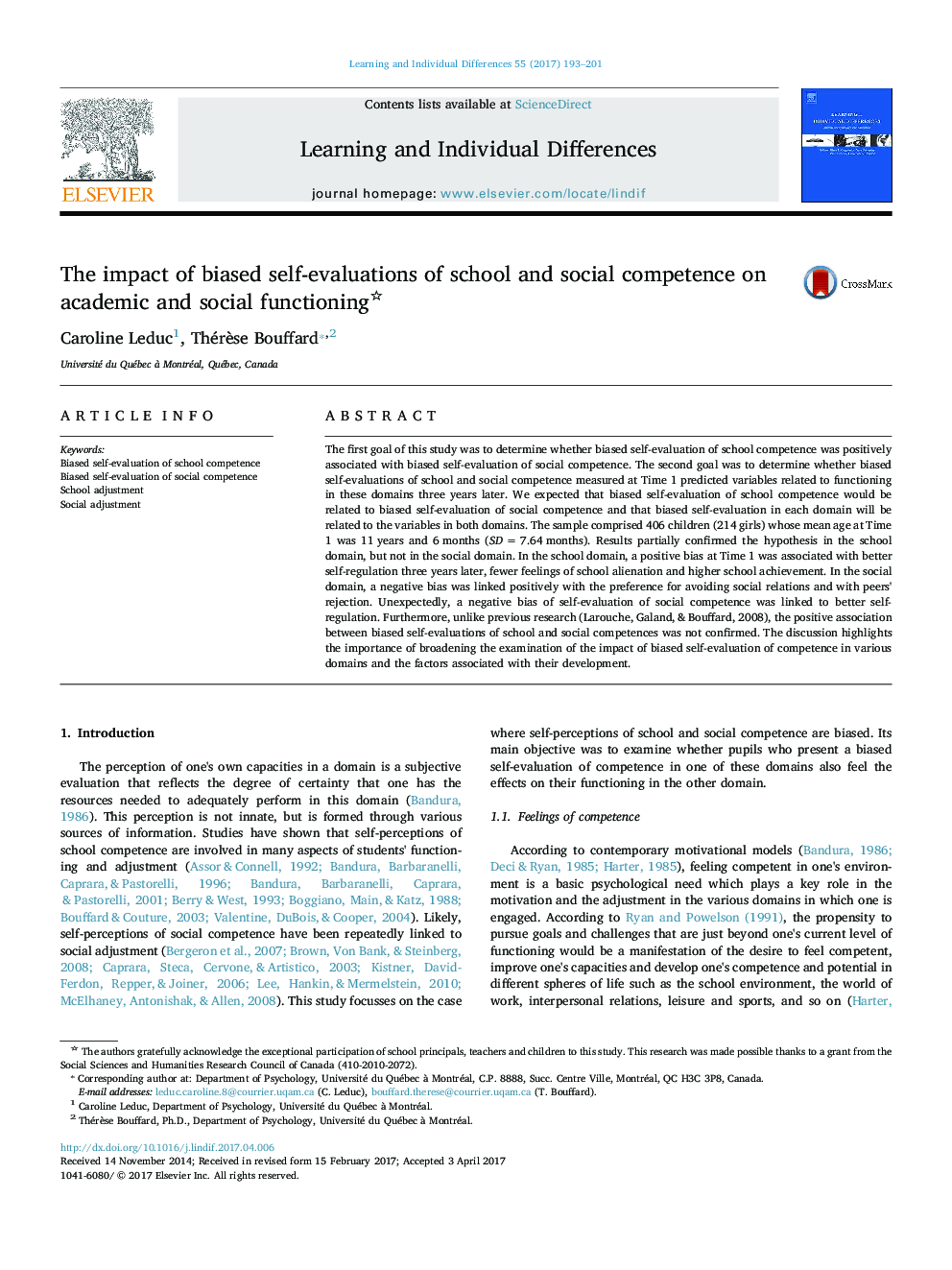| Article ID | Journal | Published Year | Pages | File Type |
|---|---|---|---|---|
| 4939991 | Learning and Individual Differences | 2017 | 9 Pages |
Abstract
The first goal of this study was to determine whether biased self-evaluation of school competence was positively associated with biased self-evaluation of social competence. The second goal was to determine whether biased self-evaluations of school and social competence measured at Time 1 predicted variables related to functioning in these domains three years later. We expected that biased self-evaluation of school competence would be related to biased self-evaluation of social competence and that biased self-evaluation in each domain will be related to the variables in both domains. The sample comprised 406 children (214 girls) whose mean age at Time 1 was 11Â years and 6Â months (SDÂ =Â 7.64Â months). Results partially confirmed the hypothesis in the school domain, but not in the social domain. In the school domain, a positive bias at Time 1 was associated with better self-regulation three years later, fewer feelings of school alienation and higher school achievement. In the social domain, a negative bias was linked positively with the preference for avoiding social relations and with peers' rejection. Unexpectedly, a negative bias of self-evaluation of social competence was linked to better self-regulation. Furthermore, unlike previous research (Larouche, Galand, & Bouffard, 2008), the positive association between biased self-evaluations of school and social competences was not confirmed. The discussion highlights the importance of broadening the examination of the impact of biased self-evaluation of competence in various domains and the factors associated with their development.
Keywords
Related Topics
Social Sciences and Humanities
Psychology
Developmental and Educational Psychology
Authors
Caroline Leduc, Thérèse Bouffard,
